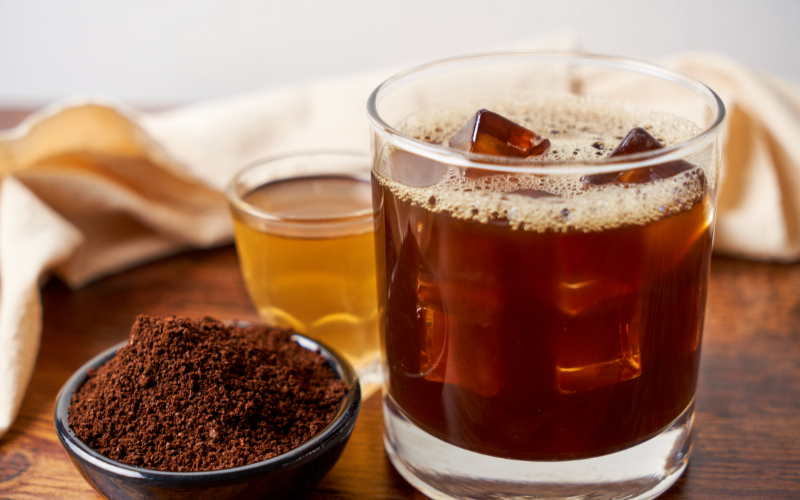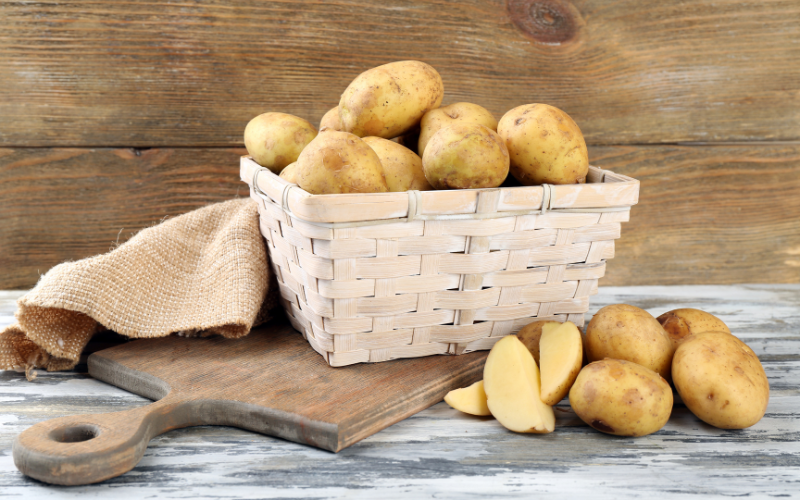Foods That Affect Sleep: What to Eat (and Avoid) for Better Rest
Written By Vicki Cohn, DDS, D.ABDSM
Sleep is essential for our physical and mental well-being, yet many of us struggle to get enough of it. If you’re among the countless people who find themselves tossing and turning at night, it might be time to rethink your diet. The foods you consume throughout the day can have a profound effect on your ability to fall asleep and stay asleep. Let’s dive into the science behind how certain foods can impact your sleep quality, and explore which ones you should include in your diet for better rest — and which ones to avoid.
Foods That Help Promote Sleep
- Almonds
Almonds are an excellent source of magnesium, a mineral known to help improve sleep quality by promoting muscle relaxation and reducing stress. They also contain melatonin, a hormone that regulates your sleep-wake cycle. A small handful of almonds before bed may help you fall asleep faster and experience deeper sleep. - Cherries
Cherries, especially tart cherries, are one of the few natural sources of melatonin. This powerful sleep hormone helps to regulate your circadian rhythm. Drinking tart cherry juice or snacking on fresh cherries in the evening can give your body the melatonin boost it needs to fall asleep naturally. - Bananas
Bananas are rich in potassium and magnesium, both of which help to relax muscles and nerves, making it easier to wind down at night. They also contain tryptophan, an amino acid that your body uses to produce serotonin, which is converted into melatonin. The combination of these nutrients makes bananas a great choice for improving sleep. - Oats
Oats are a natural source of melatonin, making them a great bedtime snack. They also contain a form of soluble fiber known as beta-glucan, which has been shown to lower cholesterol and improve heart health. The slow-releasing carbs in oats can also help stabilize blood sugar levels, preventing nighttime wakefulness due to dips in blood sugar. - Herbal Tea (Chamomile, Lavender, Peppermint)
Herbal teas like chamomile, lavender, and peppermint are well-known for their calming properties. Chamomile contains apigenin, an antioxidant that binds to specific receptors in the brain to promote relaxation and sleep. Lavender is also associated with improved sleep quality and has been shown to reduce symptoms of insomnia. Peppermint tea can help relax muscles and relieve stress, making it easier to unwind before bed. - Kiwi
Kiwi is packed with antioxidants, vitamin C, and serotonin, all of which can contribute to improved sleep quality. Studies have shown that consuming kiwi before bed may help reduce the time it takes to fall asleep, enhance sleep quality, and increase sleep duration. Plus, their high fiber content can help regulate digestion, preventing discomfort that might interfere with your rest. - Turkey
Turkey is another food high in tryptophan, an amino acid that helps the body produce serotonin and melatonin. While you might think of turkey as a food reserved for Thanksgiving, incorporating it into your dinner can help promote restful sleep, especially when paired with carbohydrates like sweet potatoes or whole grains.

Foods That Can Disrupt Sleep
- Caffeine
Caffeine is a well-known stimulant found in coffee, tea, chocolate, and some sodas. It works by blocking adenosine, a brain chemical that promotes sleep. Even if you enjoy a cup of coffee in the afternoon, it can interfere with your ability to fall asleep later in the evening. It’s best to limit your caffeine intake to the morning hours and avoid it at least 6 hours before bedtime. - Alcohol
While alcohol may make you feel drowsy at first, it can interfere with your sleep cycle. Alcohol disrupts REM sleep, the stage of sleep that is crucial for cognitive functions like memory and learning. It can also lead to frequent awakenings during the night, resulting in a less restful sleep. If you want a good night’s rest, it’s best to avoid alcohol close to bedtime. - Spicy Foods
Spicy foods can cause discomfort, especially if you’re prone to acid reflux or heartburn. Capsaicin, the compound that gives spicy foods their heat, can increase your body temperature, making it harder for your body to cool down and enter sleep mode. Additionally, the digestive issues caused by spicy foods can keep you up at night. - Heavy or Fatty Meals
Rich, greasy meals like fast food, pizza, or steak might feel satisfying in the moment, but they can disrupt sleep by triggering indigestion or acid reflux. When you eat large or fatty meals too close to bedtime, your body has to work harder to digest the food, which can cause discomfort and make it difficult to relax and fall asleep. Try to have your last meal 2-3 hours before bed, and avoid overly greasy foods in the evening. - Sugary Snacks
Foods high in sugar and refined carbs can cause blood sugar spikes followed by crashes that can disturb your sleep. If you consume a sugary treat before bed, you may experience a burst of energy followed by a sudden drop in energy, which can cause you to wake up during the night. Opt for healthier, lower-sugar snacks like fruit or yogurt if you need a late-night bite. - Sugar substitutes Saccharin, Aspartame, Sucralose – these products can actually make you hungrier and apt to eat more, and there is evidence that they can create insomnia
- Processed Meats
Processed meats like sausages, bacon, and hot dogs are high in sodium and unhealthy fats, both of which can interfere with sleep. Excessive salt can cause bloating and dehydration, which may make it difficult to sleep comfortably. The nitrates and preservatives in processed meats can also disrupt your body’s ability to relax and stay asleep.
Tips for Better Sleep Through Nutrition
- Keep your meals light: Eating large meals before bed can interfere with your digestion and sleep quality. Opt for a light snack instead, such as a small bowl of yogurt or a banana.
- Balance your nutrients: Make sure to incorporate foods that support both your physical and mental well-being, including magnesium, potassium, tryptophan, and antioxidants.
- Stay hydrated: Dehydration can cause disruptions to your sleep cycle, so be sure to drink enough water during the day. However, avoid excessive amounts of liquids right before bed to minimize bathroom trips during the night.
- Avoid foods you may be sensitive or allergic to: Foods that you are sensitive to may create overall inflammation. Inflammation will adversely affect your sleep quality. For instance, for some people dairy products can create nasal congestion – increased nasal congestion will decrease sleep quality, increase sleep apnea and may be associated with decrease O2 during sleep
- Avoid late night meals and snacks: Late night eating can increase you sleep apnea and decrease sleep quality. Start paying attention to your sleep quality after eating late to see how it affects you.
- Establish a bedtime routine: Pairing your diet with healthy sleep hygiene practices — such as avoiding screens before bed, keeping your bedroom cool and dark, and maintaining a consistent sleep schedule — can optimize your rest.
Conclusion
What you eat plays a more significant role in your sleep than you might think. By incorporating sleep-friendly foods into your diet and steering clear of those that disrupt rest, you can improve both the quality and duration of your sleep. A balanced diet rich in nutrients like magnesium, potassium, and melatonin — along with healthy sleep habits — can help you wake up feeling refreshed and energized every morning. So, the next time you’re thinking about what to snack on before bed, remember: your sleep might just depend on it!

